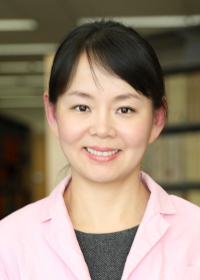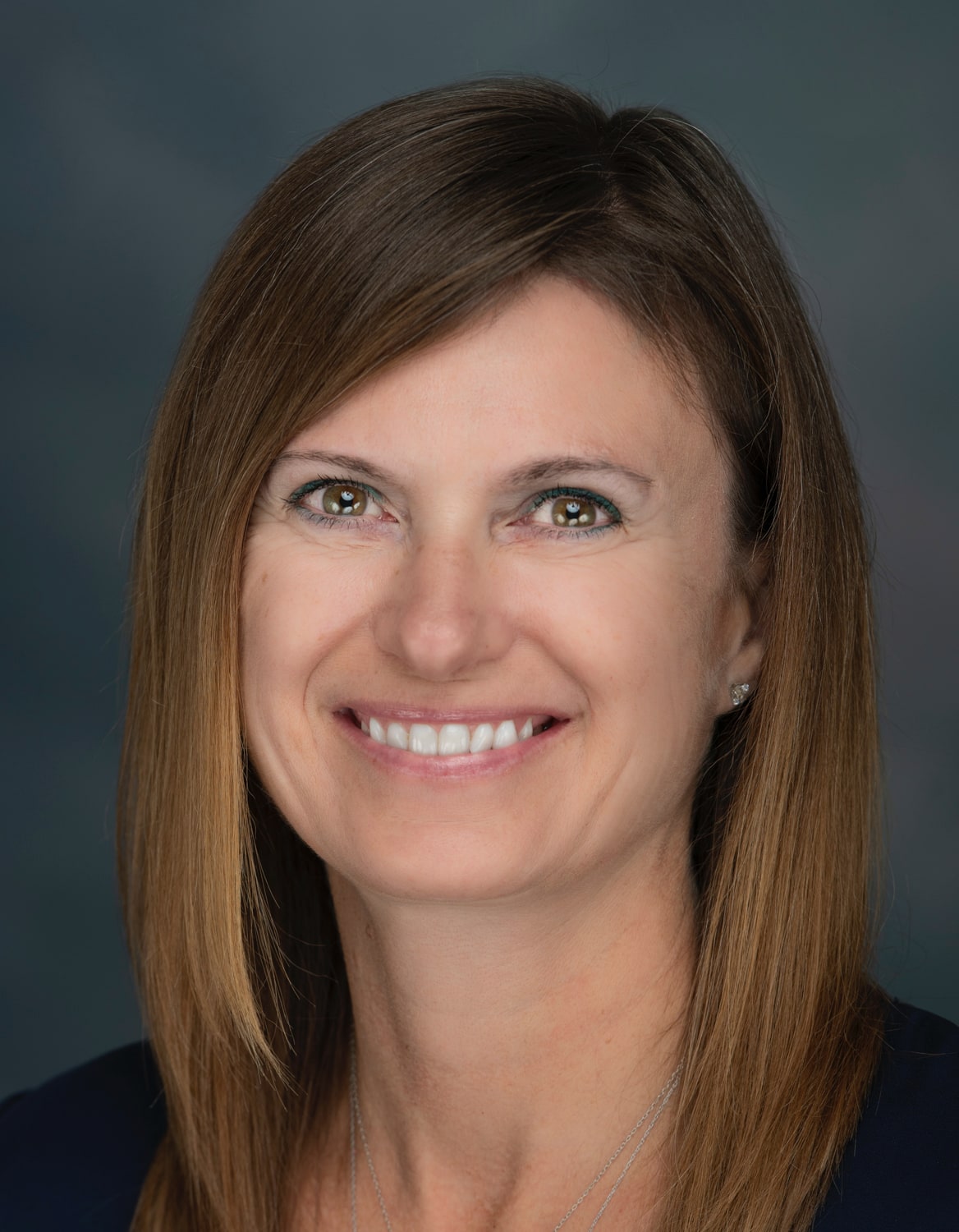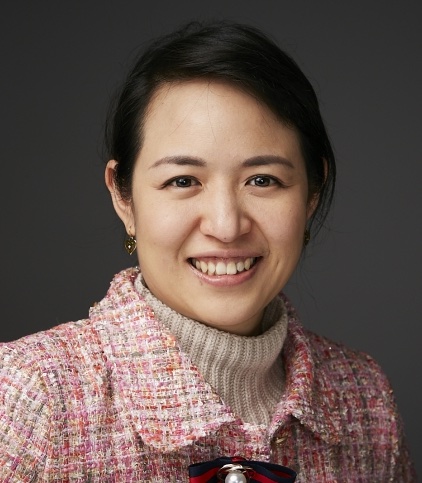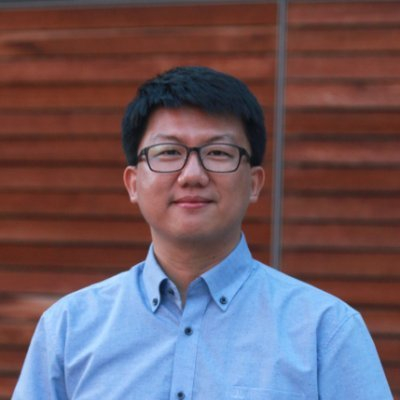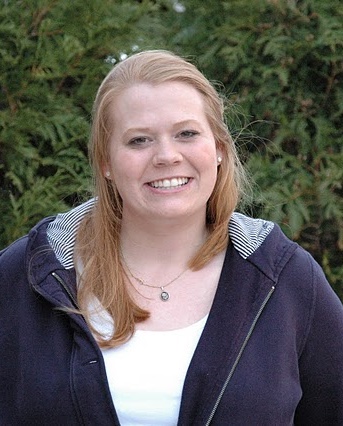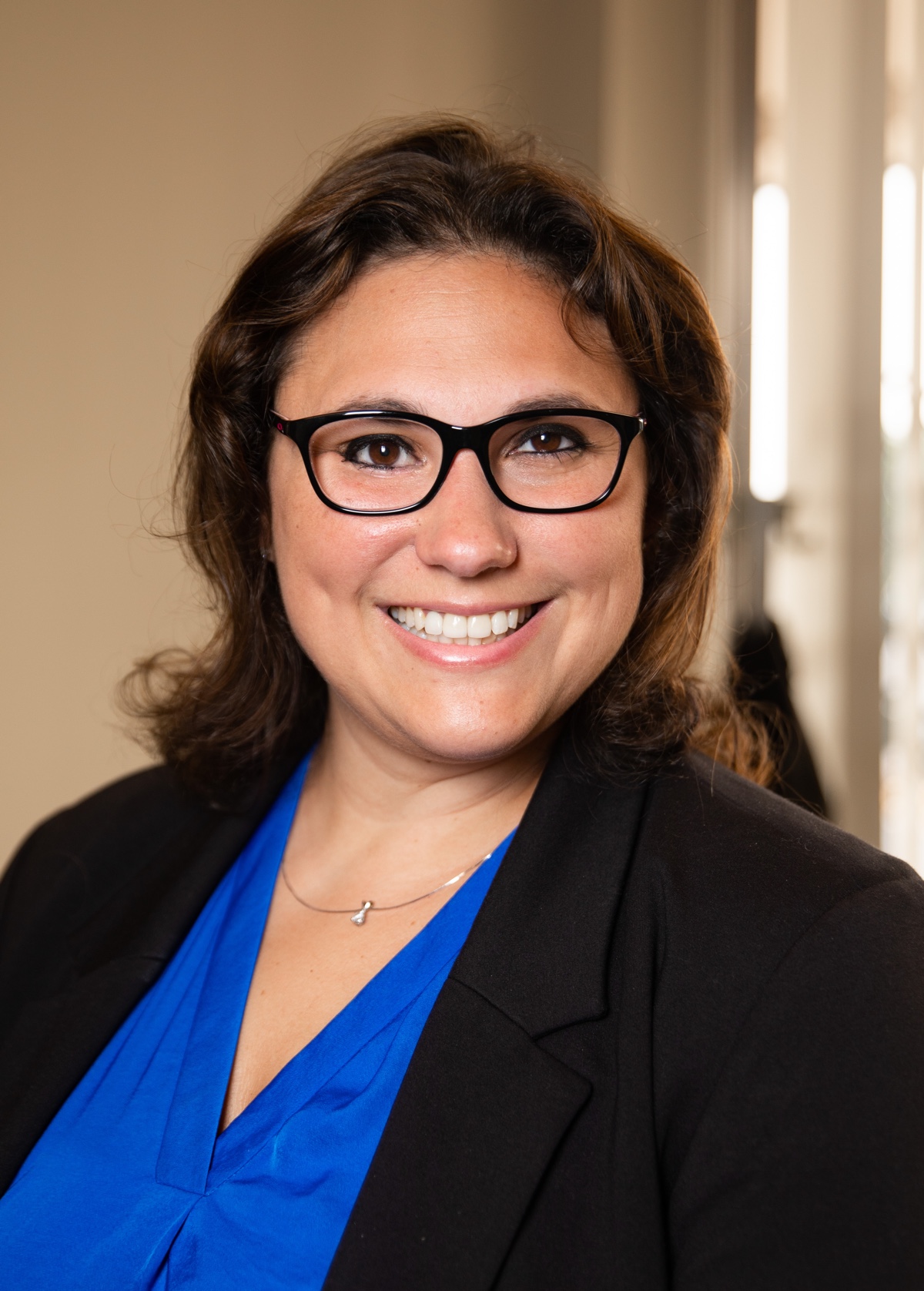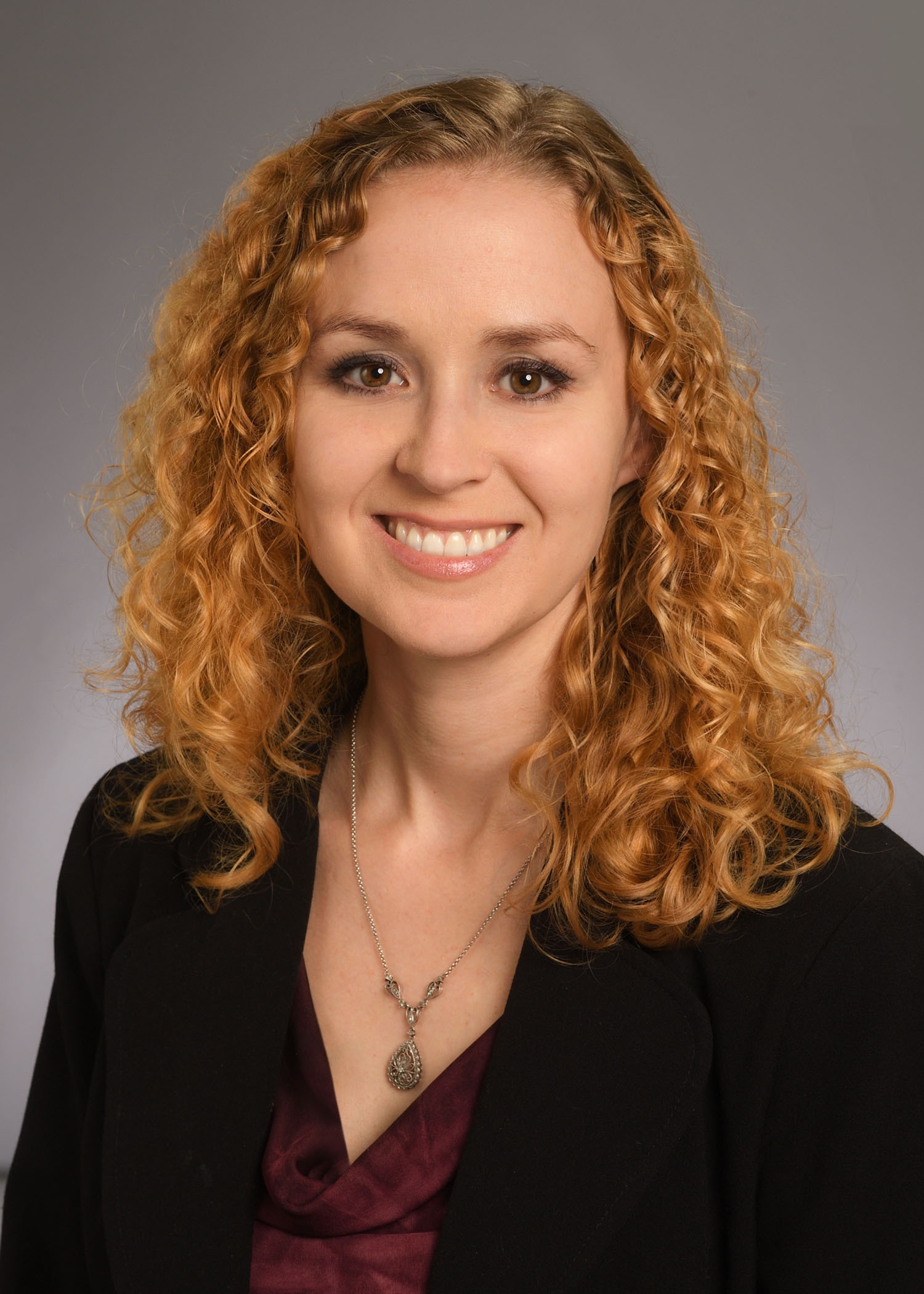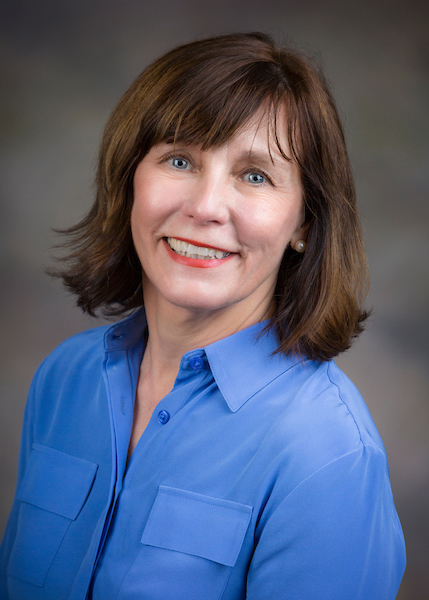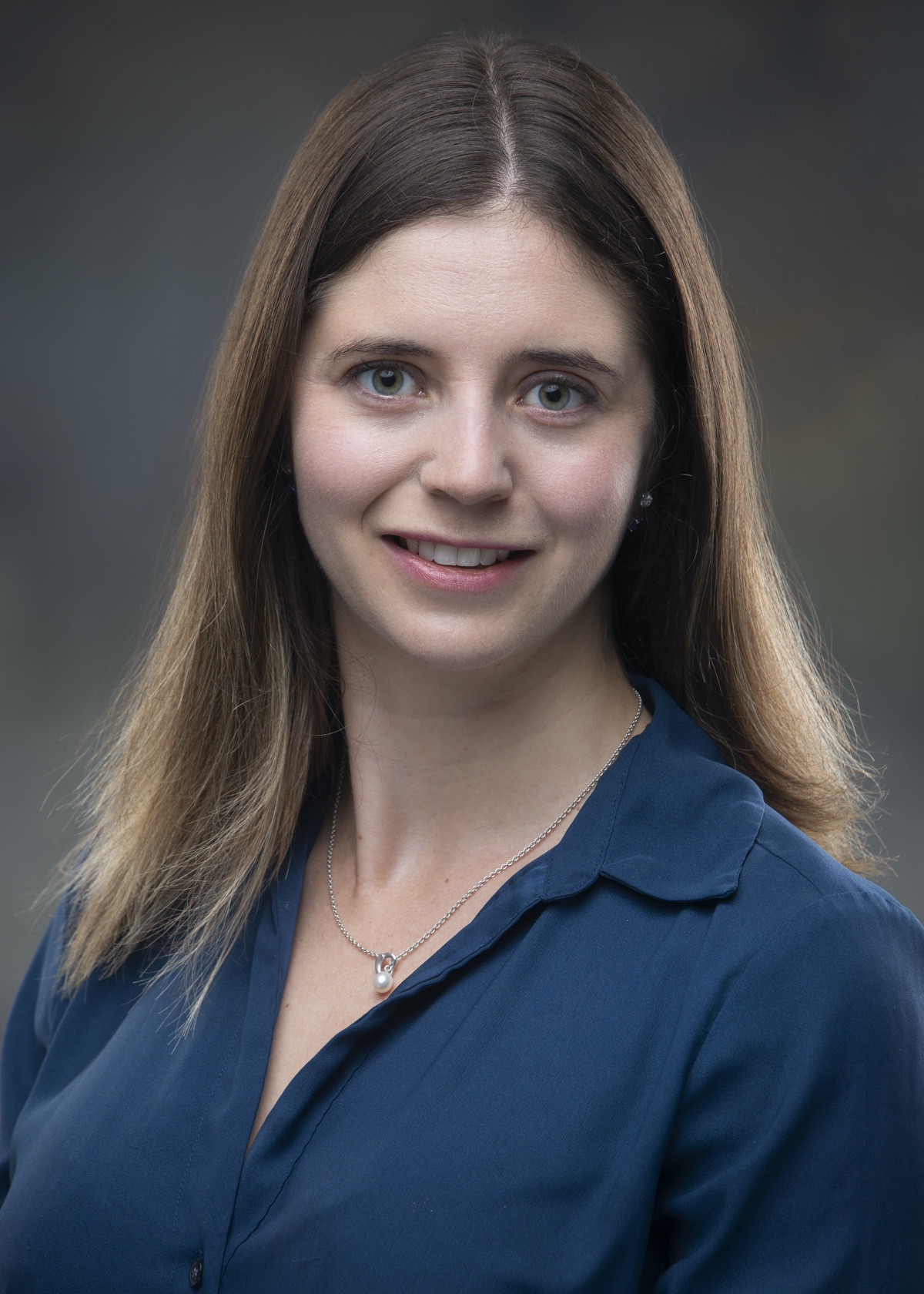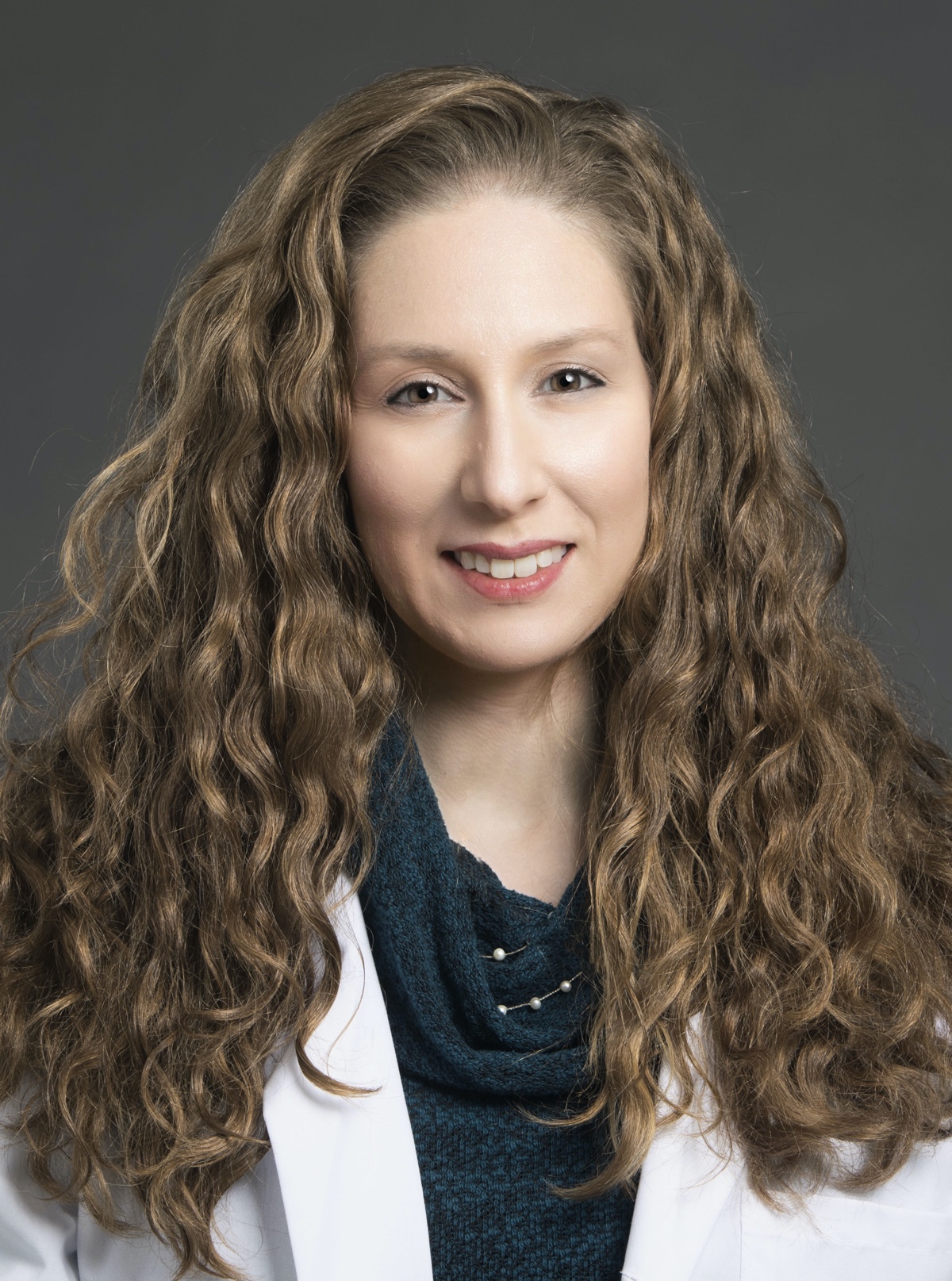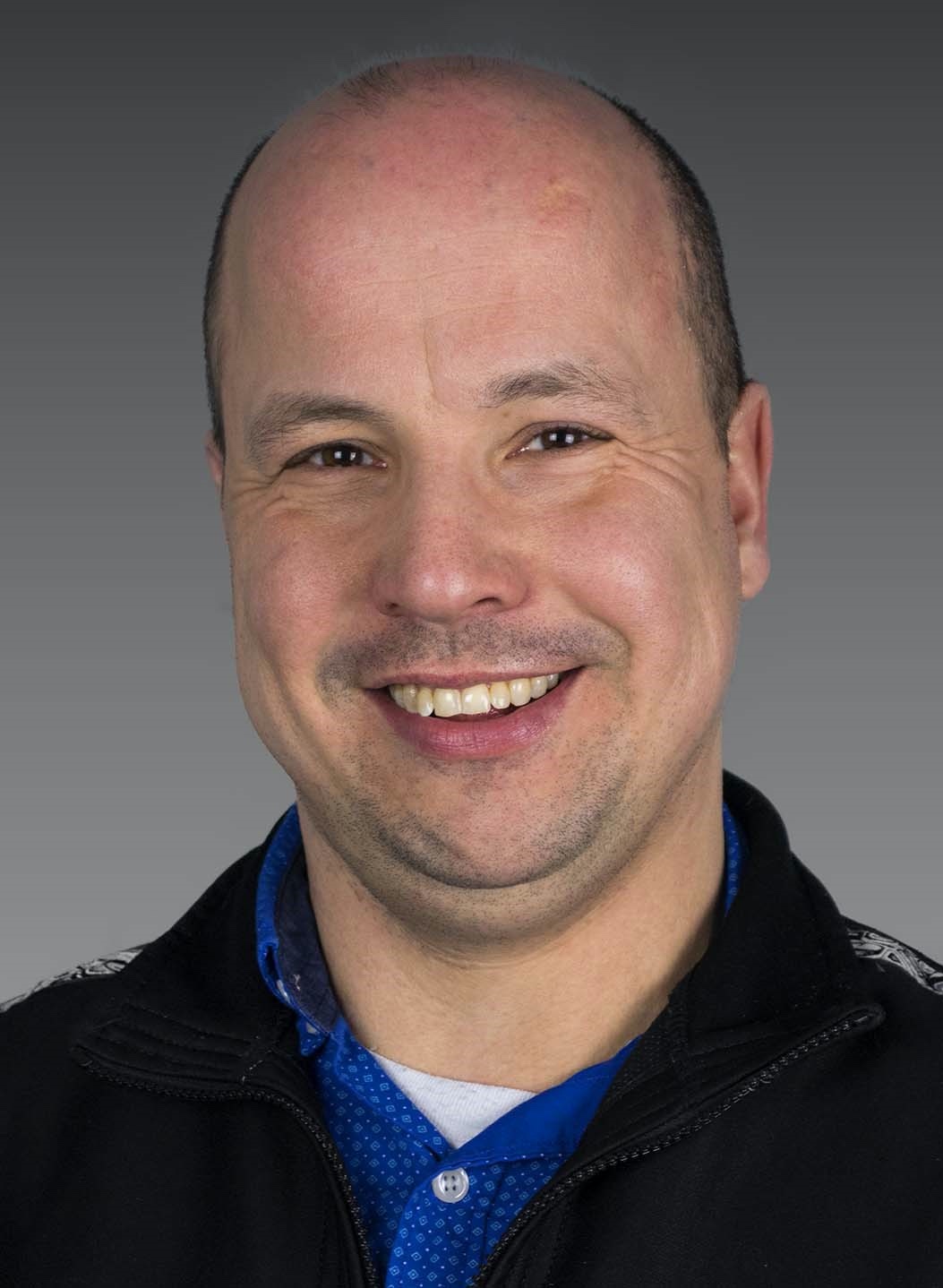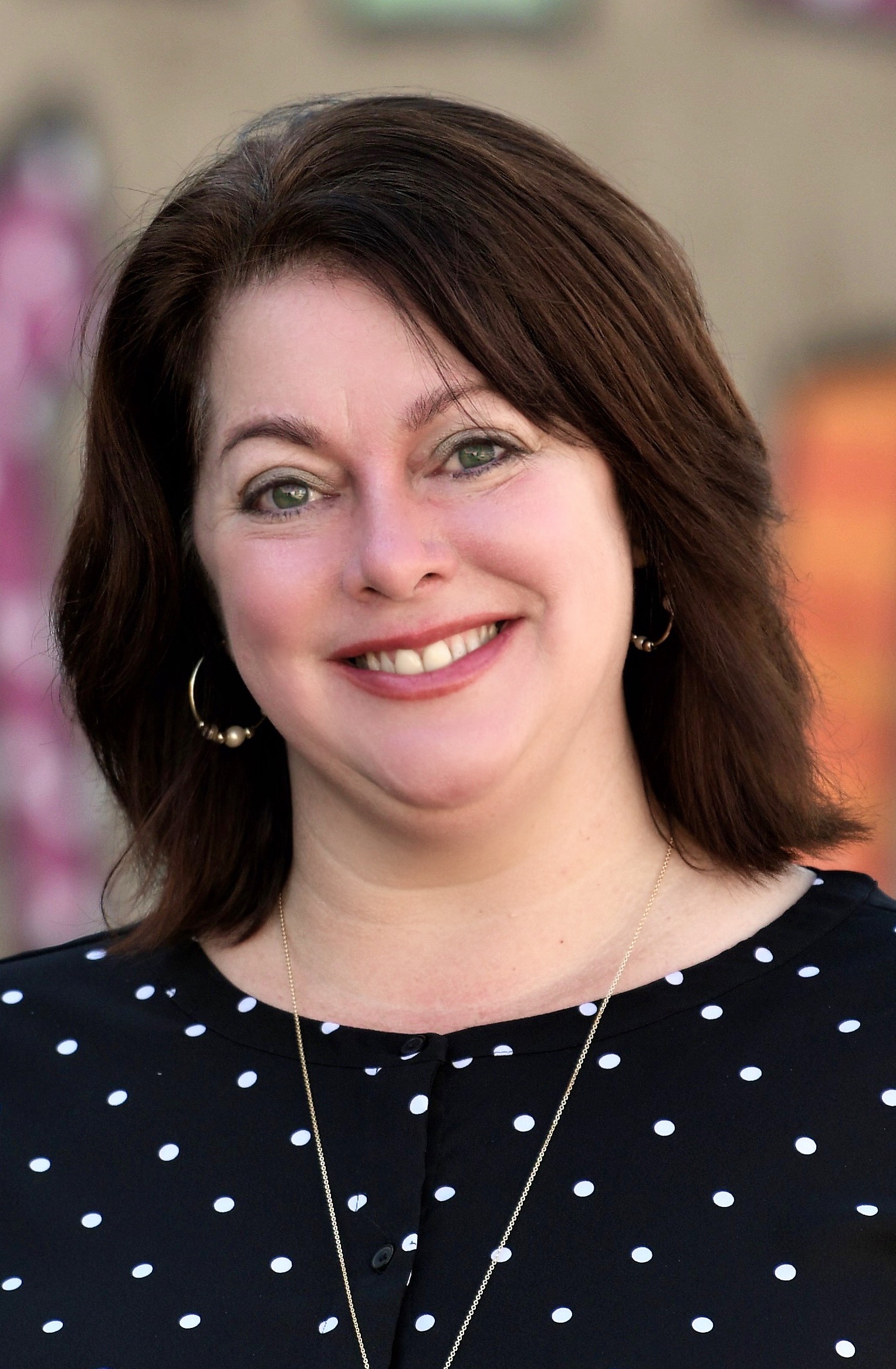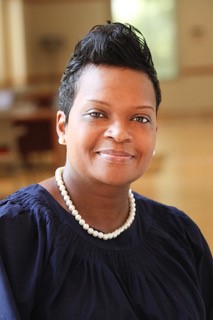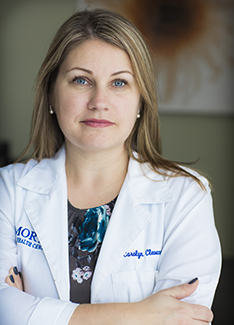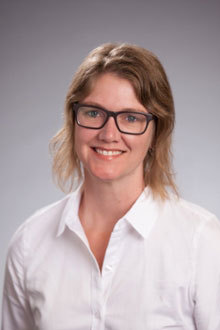Current Funded Pilot Projects
1. Y. Alicia Hong, Ph.D.
WECARE: A mHealth intervention to enhance caregiving mastery and reduce psychosocial distress among Chinese American dementia caregivers.
Dr. Alicia Hong is a Professor at the George Mason University Department of Health Administration and Policy. Her current research is focused on how to effectively apply health information technology in disease prevention and health promotion, particularly on chronic disease management and caregiving. She employs community-engaged user-centered design to develop culturally tailored programs, integrating low-cost digital tools with clinical care to deliver personalized programs that are easy to adopt and sustain in underserved communities, ultimately reducing health disparities. Previously, Dr. Hong has worked with immigrants, racial and ethnic minorities, people living with HIV, cancer survivors, and older adults with multiple chronic conditions in interdisciplinary and community-engaged research projects. Through this pilot grant, she’s excited to develop the innovative social media-based caregiving intervention for an underserved population of Chinese American dementia caregivers.
This study aims to refine and pilot WECARE (Wellness Enhancement for Caregivers), a culturally tailored 7-week mHealth intervention designed for Chinese American dementia caregivers. Guided by behavioral theories on caregiving mastery and stress reduction and adapted from existing evidence-based programs, the WECARE consists of culturally sensitive linguistically appropriate multimedia curriculum; it also includes personalized messages to enhance caregiving mastery and stress management, “group chats” to enhance social support and peer-learning, and location-specific local resources. The WECARE intervention will be delivered via WeChat, a social media app highly popular in Chinese Americans. The project has two aims:
AIM 1
Adapt and refine the WECARE program based on feedback from preliminary study and inputs from key stakeholders.
AIM 2
Evaluate the acceptability, feasibility, and preliminary efficacy of WECARE with a pre-post trial among Chinese American dementia caregivers.
2. Dr. Candace L. Kemp, Ph.D.
Improving Care through Improv: Promoting Mastery in the Moment
Dr. Candace L. Kemp is a Professor of Gerontology at Georgia State University where she teaches and conducts research on aging and the life course, family and social relationships, and long-term care. Much of her recent work is funded by the National Institute on Aging at the National Institutes of Health and examines formal and informal care work, partnerships, and networks, and seeks to improve quality of life for older adults and those who support them, especially persons living with dementia and those at end of life, and their myriad care partners. Dr. Kemp is a long-standing member of Georgia’s Long-term Care Ombudsman Advisory Council, an editorial board member for the Journal of Applied Gerontology, and a former associate editor for the Journals of Gerontology: Social Sciences. She also is a Fellow of the Gerontological Society of America and a Victor W. Marshall Fellow, a status awarded by the Southern Gerontological Society. Dr. Kemp earned her Ph.D. in Sociology at McMaster University in Hamilton, Ontario, Canada.
The project seeks to refine and pilot test the training program, “Improving Care through Improv.” Designed for caregivers of persons living with dementia, the program will teach communication techniques used in improvisational (improv) theatre. Improv refers to unplanned collaborative performance and requires being in the moment, self-awareness, and responsiveness to others. The underlying hypothesis is that the development and application of improv skills will enhance care partners’ sense of caregiving mastery and, in turn, will decrease negative care outcomes. This project will build on an existing partnership supported by Georgia Gear that involves Georgia State University’s Gerontology Institute and actors and educators from Dad’s Garage, an improvisational theatre company located in Atlanta, Georgia. Educational materials developed to train formal (i.e., paid) caregivers and health care providers will be adapted and expanded for use among family and friends who are caring for persons living with dementia. The project has two specific aims:
AIM 1
To refine the program, “Improving Care through Improv” for informal dementia care partners.
AIM 2
To assess the feasibility, acceptability, and preliminary efficacy of “Improving Care through Improv” through pilot testing of a no-control trial involving four, 2-hour weekly training sessions delivered to 40 care partners of persons living with moderate dementia.
2022-2023
1. Dr. Shih-Yin Lin, PhD, MM, MPH and Dr. Yong K. Choi, Ph.D., M.P.H.
Development and Piloting of a Family-Centered, mHealth-Enhanced Intervention to Promote Caregiving Mastery in Detection, Prevention, and Management of Delirium Superimposed on Dementia
Dr. Shih-Yin Lin is a Senior Research Scientist at NYU Rory Meyers College of Nursing. She is currently Senior Research Scientist/Project Director for Aliviado Health at the Harford Institute for Geriatric Nursing, where she provides scientific and operational leadership on an NIH-funded, 25-site pragmatic clinical trial that tests the effectiveness of the Aliviado Dementia Care program (PI: Brody). Dr. Lin received a PhD in Nursing Science and MPH in Health Services from the University of Washington, an MM in Music Therapy from Michigan State University, and a BFA from National Taiwan Normal University. While pursuing her doctorate, Lin received additional research training through a T32 Aging and Informatics training program and a TL1 Multidisciplinary Predoctoral Clinical Research Training Program. Dr. Lin received postdoctoral training at the University of Washington School of Medicine through a T15 Biomedical and Health Informatics Training Program. Dr. Lin has extensive experience working with persons living with dementia. Before becoming a PhD-trained scientist, Lin worked as a full-time music therapist for five years, providing on average, 1,000 group and individual therapy sessions annually in nursing homes, assisted living facilities, adult day centers, senior centers, veteran homes, retirement communities, medical centers, and private residences, seeing approximately 200 persons living with dementia weekly. Her research interests include dementia friendly communities, delirium superimposed on dementia, non-pharmacological interventions and technologies for older adults and their care partners. Dr. Lin is a recipient of the 2022 Network for Investigation on Delirium: Unifying Scientists (NIDUS) II Collaborative Award.
Dr. Yong Choi is an Assistant Professor at the Department of Public Health Sciences, Health Informatics Division at the University of California Davis, School of Medicine. Choi received his bachelor’s degree in Computer Science from Texas A&M University, his master’s degree in Public Health from Texas A&M University Health Science Center, and his doctorate in Biomedical and Health Informatics from the University of Washington. Dr. Choi’s doctoral training focused on the design and evaluation of digital health technologies to support the aging-in-place of older adults by addressing their own needs and the needs of their family caregivers. He is committed to engaging individuals and families to inform the design, development, and evaluation of technology tools. Dr. Choi’s research has important implications for the design of digital health solutions that are easily adopted by older adults and their family caregivers.
This pilot study seeks to develop and assess feasibility, acceptability, usability, and preliminary impact of the Aliviado Delirium Superimposed on Dementia (DSD) Caregiving Mastery Program. The Aliviado DSD Caregiving Mastery program will adapt the existing DSD contents from the evidence-based, clinician-focused Aliviado Dementia Care program for use by family caregivers to support their day-to-day implementation of DSD detection, prevention, and management tasks in the community. The DSD Caregiving Mastery program will mainly be delivered via an mHealth app and will retain the main components of Aliviado Dementia Care (i.e., training, symptom management algorithms, assessments, care plans, and education articles) plus additional brief communication guides to empower/activate caregivers to discuss probably DSD and de-prescribing of delirium-inducing medications with their healthcare providers.
AIM 1
Develop/refine the DSD Caregiving Mastery Program through a 5-week co-design workshop with 8 family caregivers to adapt the existing clinician-focused Aliviado DSD contents, as well as to iteratively redesign/revise the currently clinician-facing Aliviado mHealth app user interface for use by family caregivers.
AIM 2
Assess feasibility, acceptability, app usability, and preliminary impact of the Aliviado DSD Caregiving Mastery Program through a 6-week, single-group, pre-post study with 30 family caregivers.
2. Annie T. Chen, PhD, MSIS and Oleg Zaslavsky PhD, MHA, RN
VOCALE LBD+: Leveraging Social Technologies and Problem-Solving Skills to Enhance Mastery among Caregivers of Persons with Lewy Body Dementia
Dr. Chen is an Associate Professor in the Department of Biomedical Informatics and Medical Education at University of Washington School of Medicine, Adjunct Associate Professor of the UW Information School (iSchool), and an affiliate of the UW eScience Institute and UW Center for Studies in Demography and Ecology. Her research expertise includes the design, development, and evaluation of digital and social technologies for health management of complex, chronic conditions. Areas of particular interest include cognitive-behavioral interventions, “holistic” analysis of data using quantitative and qualitative methodologies, and stakeholder engagement in the design of supportive technologies. She is also actively engaged in research to better characterize the lived experiences of older adults and their families with dementia.
Dr. Zaslavsky is an Associate Professor in the Biobehavioral Nursing and Health Informatics department at the University of Washington, School of Nursing. Dr. Zaslavsky’s research focuses on digital behavioral intervention for vulnerable and older populations, including older adults with frailty, multimorbidity, and dementia. He is a recipient of multiple federal grants and published about 100 peer-review publications. Since 2017, Dr. Zaslavsky has been a core member of the interdisciplinary Behavioral Research in Technology and Engineering Center (BRiTE) at the University of Washington, School of Medicine, which is dedicated to improving behavioral health through technology.
The purpose of this study is to refine and pilot the VOCALE LBD+ (Virtual Online Communities for Aging Life Experiences) intervention, an 8-week online intervention for caregivers of people with LBD. The intervention provides didactic training and fosters problem-solving skill enactment within a moderated online community with peer support. With VOCALE LBD+, we aim to enhance participants’ caregiving mastery by increasing opportunities for them to apply problem solving skills to day-to-day caregiving challenges, as well as to share stories and strategies with one another in the supportive asynchronous discussion forum. Formative research with caregivers of people with Lewy Body Dementia and dementia experts will inform intervention design and ensure usability. A pilot evaluation of the refined intervention will then be conducted with caregivers using a pre-test/post-test design. The project has two aims:
AIM 1
Employ a user-centered approach to develop stronger caregiver mastery-oriented content for the VOCALE LBD+ intervention.
AIM 2
Describe feasibility, acceptability and initial efficacy of VOCALE LBD+, concerning caregiving mastery, in a pilot trial.
2021-2022
1. Dr. Allison Gibson, PhD, MSW, LISW and Dr. Elizabeth Rhodus, PhD, OTR/L
Creating Harmony at HOME: A pilot study of a telehealth-based program for rural caregivers’ ability to adapt home environments for adults with Alzheimer’s Disease and Related Disorders (ADRD)
Associate Professor, College of Social Work, University of Kentucky
Dr. Allison Gibson is an Associate Professor at the University of Kentucky’s College of Social Work. Dr. Gibson’s academic training and clinical social work practice informs her work with aging individuals and their families from a biopsychosocial perspective. Her research aims are to develop interventions that empower individuals with Alzheimer’s disease and related dementias and their family caregivers of to improve health and well-being, quality of life, and to support outcomes to age in place. As a former rural county social worker, she is passionate about improving access to caregiver education and resources for families in rural areas. Dr. Gibson is affiliate faculty with UK Sanders-Brown Center on Aging and the UK Graduate Center for Gerontology.
Assistant Professor, Sanders-Brown Center on Aging and Department of Behavioral Science, University of Kentucky
Dr. Elizabeth Rhodus is an Assistant Professor at the Sanders-Brown Center on Aging and Department of Behavioral Science and is an affiliate faculty member of the Center for Health Equity Transformation at the University of Kentucky. Dr. Rhodus has over 10 years of clinical experience as an occupational therapist, predominately serving rural communities. She sought doctoral training in Gerontology specifically to enhance evidence-based interventions for adults with cognitive impairment and their care partners. Dr. Rhodus completed postdoctoral training at the University of Kentucky Alzheimer’s Disease Research Center supported by the NIH/NIA T32 “Training in Translational Research in Alzheimer’s and Related Dementias” with emphasis in ADRD clinical trial design. Her current work is centered around the development of behavioral assessment and interventions to support health equity and quality of life while aging at home despite living with dementia.
The purpose of this study is to adapt and test feasibility of the Harmony at H.O.M.E. (Help Online Modifying the Environment) intervention within the rural context; a telehealth intervention designed to promote caregiver mastery by educating care partners on modifying the environment to support functional behaviors of older adults with Alzheimer’s disease. Adaptation for use in a rural context will occur through focus groups and qualitative feedback from study clinicians and rural care partners. The study will further explore feasibility of the intervention in rural regions to improve caregiver mastery in assessing and modifying behavioral antecedents using the home environment to improve behavioral symptoms in persons with Alzheimer’s disease.
AIM 1
Adapt the Harmony at HOME intervention to accommodate Appalachian rural care partners’ needs to support Alzheimer’s disease care provision within the home.
AIM 2
Establish the feasibility of Harmony at HOME in improving caregiver competency and reducing the frequency of behavioral symptoms of dementia.
2. Dr. Lindsay Prizer, PhD, MSW, LCSW
The Couple in Control
Lindsay Prizer, PhD, MSW, LCSW is an Assistant Professor in the Emory University School of Medicine’s Division of General Medicine and Geriatrics. She is a licensed clinical social worker, and she holds a PhD in public health. Dr. Prizer serves as the Primary Care Core Lead for Georgia Memory Net, a state-funded project redesigning the Georgia healthcare system to improve early screening and diagnosis of dementia throughout the state. She is also the Care Partner Programming Lead of the Cognitive Empowerment Program, an evidence-based lifestyle program for persons with mild cognitive impairment and their care partners. Dr. Prizer was one of 27 lead authors internationally for the 2018 Alzheimer’s Association Dementia Care Practice Recommendations. She currently serves as a Board Member for the Georgia POLST Collaborative and as Faculty for the Alzheimer’s Association’s LINC-AD Research Consortium.
This pilot project seeks to develop and test the feasibility, acceptability, and preliminary efficacy of a group program, The Couple in Control (CiC), to provide couples facing MCI with a toolkit of communication skills and decisional strategies to name and understand the progressive challenges they face and enable them to consider, discuss, and cope with these challenges in the moment and as they arise. Preliminary work has produced a curriculum outline of CiC, one that draws on evidence-based psychoeducation principles. The project will pursue two specific aims:
AIM 1
Using the curriculum outline established in earlier activities with an advisory board of persons living with MCI and their care partners, complete a prototype of the intervention.
AIM 2
Evaluate the acceptability, feasibility and preliminary efficacy of the prototype Couple in Control program using quantitative approaches with four groups of 6 MCI couples each (N=24 dyads/48 individuals).
2020-2021
1. Dr. Carole White and Dr. Kylie Meyer
A pilot evaluation of Learning Skills Together: An intervention to teach complex care skills to caregivers of persons living with Alzheimer’s Disease
Professor and Nancy Smith Hurd Chair in Geriatric Nursing and Aging Studies, UT Health San Antonio, School of Nursing, Caring for the Caregiver Program
Carole White, PhD, RN is Professor and Nancy Smith Hurd Chair in Geriatric Nursing and Aging Studies at the School of Nursing, UT Health San Antonio. She leads the Caring for the Caregiver, a program supporting family caregivers to persons living with dementia through education, research, and community engagement. She is nationally recognized for her research with family caregivers, with her research focused on optimizing outcomes for family caregivers of stroke survivors and persons living with dementia, through development of interventions and translation of evidence-based interventions into practice. She is a Fellow of the American Academy of Nursing. Dr. White teaches in the doctoral nursing programs at the School of Nursing.
Postdoctoral Research at the School of Nursing’s Caring for the Caregiver Program at UT Health San Antonio
Kylie Meyer, PhD, is a postdoctoral researcher at the UT Health San Antonio School of Nursing Caring for the Caregiver Program. She received doctoral training at the University of Southern California Leonard Davis School of Gerontology, where she examined online programs to better support the informational needs of family caregivers. Prior to her doctoral training, Dr. Meyer completed master’s-level Gerontological training on a U.S. Fulbright at the University of Southampton. As current TST TL1 postdoctoral trainee, her research focuses on building the evidence-based for translatable intervention programs to support caregivers’ health and quality of care within families.
The purpose of this study is to pilot test the Learning Skills Together intervention intended to enhance caregivers’ self-efficacy when providing complex care tasks, such as transferring and managing incontinence. The Learning Skills Together program has been developed by an interdisciplinary team of healthcare experts, and will be delivered online to caregivers over 2 weeks. The study uses a pre- and post-test design to examine differences in self-efficacy and mastery among caregivers to persons living with mid-stage dementia.
2. Jori Fleisher, MD MSCE
Learning to PERSEVERE: Peer Mentor Support and Caregiver Education in Lewy Body Dementia
Leslie Nan Burridge Endowed Faculty Scholar in Parkinson’s Disease Research, Movement Disorders Neurologist
Jori Fleisher, MD MSCE is the Leslie Nan Burridge Endowed Faculty Scholar in Parkinson’s Disease Research and an Associate Professor of Neurological Sciences at Rush University Medical Center. She is a movement disorders neurologist who directs the Rush Lewy Body Dementia Association Research Center of Excellence, CurePSP Center of Care, and the Rush Advanced Interdisciplinary Movement Disorders Supportive Care (AIMS) Clinic. Dr. Fleisher received her Master’s of Science in Clinical Epidemiology from the University of Pennsylvania, where she completed neurology and global health equities residencies and movement disorders fellowship. Dr. Fleisher has additional training in health services research, palliative care, and implementation science. Supported by the National Institutes of Health, foundations, and philanthropy, Dr. Fleisher has several studies underway focused on interdisciplinary home visits, telemedicine, interprofessional education, and peer mentoring to improve the lives of patients and families living with advanced movement disorders. Dr. Fleisher is a graduate of the American Academy of Neurology Emerging Leaders Forum, a graduate and faculty member in the Palatucci Advocacy and Leadership Forum, and a frequent speaker for local and national patient educational events.
AIM 1
To operationalize caregiving mastery in Lewy Body Dementia (LBD), focused on fall prevention, infection and neuropsychiatric symptom management, and advance directives.
AIM 2
To test the impact of peer mentor training on LBD caregiver mastery. We will adapt, improve, and implement a peer mentor support and caregiver education (PERSEVERE) intervention for LBD caregivers. We will recruit and train a cohort of approximately 30 LBD peer mentors, developing their capacity to serve as LBD caregiving mastery coaches.
AIM 3
To assess the impact of peer mentoring on Lewy Body Dementia caregiver mentees. We will match each new mentor with an active LBD caregiver for 16 weeks of peer mentoring using our revised conversation guides and handbook to assess the impact of mentoring on caregiver mastery, strain, anxiety, and depression.
3. Jordan P Lewis, PhD & Jocelyn Shealy McGee, Ph.D., M.S.G.
Dementia Caregiver Mastery with Reminiscence Therapy and Traditional Foods
Professor, Memory Keepers Medical Discovery Team,
University of Minnesota Medical School, Duluth campus
Dr. Jordan P. Lewis, Unangax, from the Native Village of Naknek, is a Professor with the Memory Keepers Medical Discovery Team and the University of Minnesota Medical School, Duluth campus. He is a cross-cultural community psychologist (PhD), social worker (BSW, MSW), a credential professional gerontologist (CPG), and a Fellow of the Gerontological Society of America. His research has identified indigenous cultural generativity as an important tool for Indigenous Elders’ health and wellbeing, as well as a key component of my Alaska Native Model of Successful Aging. Dr. Lewis’s work has important implications for the wellbeing of Alaska Native and American Indian older adults, including those with Alzheimer’s Disease and related dementias, their caregivers, and family and community members. His work has the potential to guide significant future research in the area of Indigenous health and dementia, with generalizability to aging theory among all marginalized groups.
Assistant Professor
Garland School of Social Work
Baylor University
Dr. Jocelyn Shealy McGee is an assistant professor at the Baylor University Garland School of Social Work. She received her Ph.D. in Clinical Psychology from Fuller. Postdoctoral fellowship training was undertaken in Clinical Neuropsychology at Baylor College of Medicine (APPCN accredited). A second postdoctoral fellowship was completed in Older Adult Research at the Aging Treatment Studies Program at Stanford University School of Medicine and the VA Palo Alto Healthcare System.
Dr. McGee is a Fellow of the Gerontological Society of America (GSA) in the Behavioral and Social Sciences Section and the past Co-Chair of the GSA Alzheimer’s Disease Research Interest Group. Her international interdisciplinary research team aims to develop culturally sensitive psychosocial clinical interventions for caregivers of persons with Alzheimer’s disease and other complex chronic health conditions through the integration of community-based participatory and indigenous research methodologies. Dr. McGee has contributed to the development, implementation, and evaluation of several interventions over the course of her career such as the Resources for Enhancing Caregiver Health (REACH) II intervention, the STAR VA program (which has been implemented across the VA system), and the En-Rich intervention (Enhancing Rural Interventions for Caregiver Health) which is a cognitive-behaviorally oriented telepsychology intervention.
In addition to the recently awarded Emory Roybal Center study titled, “Dementia Caregiver Mastery Using Cultural Practices” (Lewis, PI), Dr. McGee has a study aimed at better understanding the role of spirituality, positive psychology, health, & well-being in people with early-stage dementia and their family members with close to 200 participants. Additionally, she was nominated and selected for the “Spirit of Hope” Award by Sister Rosemary Nyirumbe (Time’s 100 Most Influential People for 2014) and Pros for Africa for her efforts in Malawi, Africa supporting grandmothers and other Elders who are serving as the primary caregivers of children whose parents have died from HIV/AIDS and other preventable/treatable diseases. In the summer of 2020, she served as a consultant for a Haitian NGO to develop a telepsychology program to address to needs of the Haitian people in the context of the COVID-19 pandemic.
This project will develop a testable American Indian and Alaska Native (Indigenous) family caregiver education program to promote caregiver mastery in the management of persons with dementia’s agitation and behavioral and psychological symptoms of dementia that integrates cultural practices and values. The outcome of this project will be a fully developed, Indigenous caregiver mastery development program to be ready for Stage 1 test.
4. Dr. Fayron Epps and Dr. Carolyn Clevenger
Producing a Fully Asynchronous Online Tele-Savvy Program
Assistant Professor
Nell Hodgson Woodruff School of Nursing
Emory University
Dr. Fayron Epps is an Assistant Professor at the Nell Hodgson Woodruff School of Nursing, Emory University. She has 20 years of nursing experience. She completed her postdoctoral fellowship with the National Hartford Center of Gerontological Nursing Excellence. She is a former Tideswell Emerging Leaders in Aging Scholar. Dr. Epps is an active member with numerous professional organizations, including the Gerontological Society of America and the Southern Gerontological Society. She currently serves on the Board of Directors for the Southern Gerontological Society, Alzheimer’s Association Georgia Chapter, and Meals on Wheels Atlanta. Her career goal as a nurse scholar is to promote health across the life span and increase the quality of life for family caregivers and persons living with dementia through nursing research, education and service.
Associate Dean for Clinical and Community Partnerships
Dr. Clevenger, gerontological nurse practitioner, is the Associate Dean for Clinical and Community Partnerships at the Nell Hodgson Woodruff School of Nursing. She is a nationally recognized educational leader in advanced practice nursing and in geriatrics and gerontology. She is a Past President of the Gerontological Advanced Practice Nurses Association, Fellow of the American Association of Nurse Practitioners (AANP) and the Gerontological Society of America, and contributor to the AANP Certification Program. She is Clinical Director of the nurse-led patient centered medical home for people living with dementia, the Integrated Memory Care Clinic (IMCC). IMCC represents an innovative clinical model that provides memory and primary care in a single integrated model for people living with dementia and their care partners.
AIM 1
Develop a fully asynchronous online Savvy program that incorporates learning activities that promote both knowledge and skill acquisition and develop/enhance caregivers’ felt-sense of caregiving mastery. With input from clinicians, educators, Tele-Savvy facilitators, and caregiver advisors, and assisted by the Roybal Center’s Design Studio, we will iteratively develop a storyboard and scripted curriculum for this online educational program. Then, in collaboration with our educational design consultant, we will modify/produce the text and video assets and place them on a continuing education platform that promotes active learning.
AIM 2
Establish the feasibility, acceptability and preliminary efficacy of the online program. We will recruit 60 family caregivers to take part in a no-control trial of the program, gathering data – at baseline, immediately upon course completion and at 3 months post-baseline – on caregiver distress measures (depression, strain, burden, anxiety), caregiver competence/ mastery, and care recipient quality of life. We will administer investigator-developed evaluation surveys to assess feasibility and acceptability and ad lib improvement comments. We will also seek formative evaluation input through at least 15 semi-structured debriefing interviews, post completion.
2020-2021: Supplemental Funding-National Institute on Aging
Dr. Carolyn Clevenger
Mastering the Challenges of Dementia Family Caregiving in a Time of COVID-19: An Online Course
Associate Dean for Clinical and Community Partnerships
Dr. Clevenger, gerontological nurse practitioner, is the Associate Dean for Clinical and Community Partnerships at the Nell Hodgson Woodruff School of Nursing. She is a nationally recognized educational leader in advanced practice nursing and in geriatrics and gerontology. She is a Past President of the Gerontological Advanced Practice Nurses Association, Fellow of the American Association of Nurse Practitioners (AANP) and the Gerontological Society of America, and contributor to the AANP Certification Program. She is Clinical Director of the nurse-led patient centered medical home for people living with dementia, the Integrated Memory Care Clinic (IMCC). IMCC represents an innovative clinical model that provides memory and primary care in a single integrated model for people living with dementia and their care partners.
The COVID-19 pandemic adds enormous challenges to the already taxing – and critical – role of family members who provide community-based care to the millions of Americans living with Alzheimer’s disease and similar illnesses. This project will develop and test a fully asynchronous online course designed to enhance caregivers’ mastery in maintaining the safety and well-being of care recipients and assisting them to navigate the healthcare system during this time of pandemic. The randomized wait-list control trial of the developed prototype course will establish the preliminary efficacy of the course to enhance COVID caregiving mastery and to support caregiver well-being and support revisions that will allow the course to be made available for distribution through reliable channels that can provide appropriate course supervision.
AIM 1
Develop a prototype pandemic caregiver training and education course. Through iterative Roybal Center Design Studio sessions with dementia family caregivers, program faculty, COVID-19 specialists, and other clinical experts, we will design a competency-based course curriculum, drawing on MPI Hepburn’s psychoeducation work and the clinical practices of MPI Clevenger’s Integrated Memory Care Clinic (IMCC), a patient-centered medical home for PLWD. Key to this process will be investigators Epps and Perkin’s expertise in qualitative research with diverse groups of dementia family caregivers. Based on this process, and in collaboration with the Full tilt ahead consultant team that worked on MPI Hepburn’s current project (R01AG054079) to develop an online program to train Savvy Caregiver program facilitators, we will storyboard and script a course with 30-35 brief video- and text-based instructional modules. After final revisions, we will produce the instructional text and videos and finalize the self-paced course to be tested in Aim 2 activities.
AIM 2
Conduct a waitlist-control design test of the prototype course. Drawing on caregivers from the IMCC, past participants of the Tele-Savvy project, and partnering with a variety of Emory-based sources, we will identify a diverse set of dementia family caregivers (N=100; 1/4 African American) whom we will ask to enroll in the course to participate in formative and summative research related to it. The test will gather information about the usability and salience of the course as well as its preliminary efficacy. The course faculty and research team’s observation of participants’ responses to the course and the embedded interactive exercises and the results of semi-structured interviews with a subsample of 20 participants will enable us to refine and revise the course so that it is ready further testing in an RCT and for immediate wider distribution.
2019-2020

1. Dr. Darby Morhardt
Outreach, Recruitment, and Education core director of the Northwestern Alzheimer’s Disease Center (ADC)
AIM 1
In collaboration with PPA caregiver advisors and clinical experts at the Northwestern Mesulum Center, develop and refine a prototype distance-delivered psychoeducation program (modeled on the Tele-Savvy Program) for caregivers of persons living with language variant FTD (primary progressive aphasia-PPA).
AIM 2
Assess the acceptability and usability of the refined prototype and its preliminary efficacy in improving caregiver mastery and mood and care recipient quality of life in PPA families.
2. Dr. Whitney Wharton
Cognitive Neuroscientist
AIM 1
Create a LGB-focused caregiver intervention program, to assess the stressors and unique needs of LGB caregivers of persons living with neurocognitive illnesses. Based on existing research, we hypothesize that, while the program will incorporate day-to-day and mood and behavior guidance components of Savvy, the LGB caregiver program will include learning objectives and teaching strategies focused on themes of physical, interpersonal, financial, social, and environmental stressors specific to LGB caregivers.
AIM 2
Assess, in a pilot test of the program with 30 LGB caregivers, the acceptability of the program and its preliminary efficacy in improving caregiver stress, mood and mastery and care recipient quality of life. This pilot will involve the collection of clinical indices (medical and medication history, height, weight, and blood pressure), and blood (plasma) from all 30 LGB caregivers, pre and post interventions to measure markers of inflammation influenced by stress in LGB caregivers, and stored for future innovative analyses.

